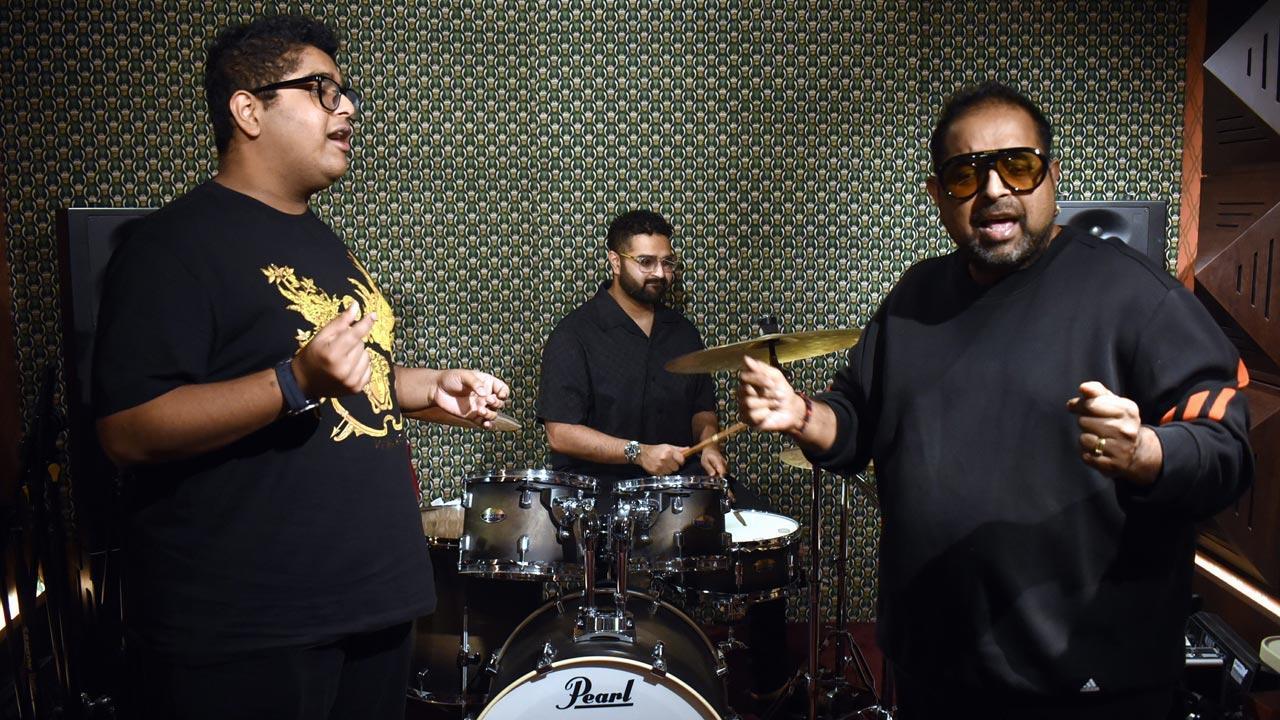Home / Sunday-mid-day / / Article /
Mahadevans, the one-stop shop
Updated On: 22 October, 2023 07:55 AM IST | Mumbai | Sonia Lulla
Apart from the decades-worth of musical knowledge that Shankar Mahadevan kept at their disposal, sons Siddharth and Shivam picked up vital technology skills that are the need of the hour

Shankar Mahadevan with sons Siddharth and Shivam
Nurturing any child artiste can be a journey fraught with frustration and uncertainty, compelling a parent to consider one of two options—allowing the child to forgo the training, or encouraging him to persist. Shankar Mahadevan, however, never found himself in this predicament. “At no point was music ever forced on them,” he says, asserting that their home atmosphere granted his sons Siddharth and Shivam the opportunity to discover their love for the art. “They even had the option of deciding whether or not they wanted to undergo [Indian classical] training, because, today, that’s not the only thing that matters. There are other forms of music to study. They were encouraged to find where their interests lie.”
Interacting with the young musicians, it’s easy to see that Shankar puts his money where his mouth is. Although they’ve displayed fine command over their craft over the years, Siddharth and Shivam are as different as chalk and cheese. With over a decade of experience under his belt, singer-composer Siddharth, 30, spent his childhood watching his veteran father interact with colleagues, compose music, and host recording sessions. “I’d travel with dad for shows, and be part of his jam sessions with his colleagues. I loved the musical environment at home, and thought I’d do something in this space.” An octapad gifted by “Siva uncle [Drums Sivamani]” was among the early instruments that fuelled interest in their study, with subsequent exposures taking him to Berklee College of Music for year-long training. “I contemplated a four-year programme, but the fact is that I had an institution at home. Others craved the real-world studio experience that we had immediate access to, and I wanted to capitalise on it.”



